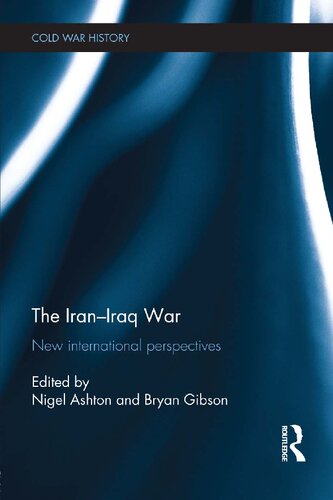

Most ebook files are in PDF format, so you can easily read them using various software such as Foxit Reader or directly on the Google Chrome browser.
Some ebook files are released by publishers in other formats such as .awz, .mobi, .epub, .fb2, etc. You may need to install specific software to read these formats on mobile/PC, such as Calibre.
Please read the tutorial at this link: https://ebookbell.com/faq
We offer FREE conversion to the popular formats you request; however, this may take some time. Therefore, right after payment, please email us, and we will try to provide the service as quickly as possible.
For some exceptional file formats or broken links (if any), please refrain from opening any disputes. Instead, email us first, and we will try to assist within a maximum of 6 hours.
EbookBell Team

4.1
60 reviewsThis volume offers a wide-ranging examination of the Iran–Iraq War (1980–88), featuring fresh regional and international perspectives derived from recently available new archival material.
Three decades ago Iran and Iraq became embroiled in a devastating eight-year war which served to re-define the international relations of the Gulf region. The Iran–Iraq War stands as an anomaly in the Cold War era; it was the only significant conflict in which the interests of the United States and Soviet Union unwittingly aligned, with both superpowers ultimately supporting the Iraqi regime.
The Iran–Iraq War re-assesses not only the superpower role in the conflict but also the war’s regional and wider international dimensions by bringing to the fore fresh evidence and new perspectives from a variety of sources. It focuses on a number of themes including the economic dimensions of the war and the roles played by a variety of powers, including the Gulf States, Turkey, France, the Soviet Union and the United States. The contributions to the volume serve to underline that the Iran–Iraq war was a defining conflict, shaping the perspectives of the key protagonists for a generation to come.
This book will be of much interest to students of international and Cold War history, Middle Eastern politics, foreign policy, and International Relations in general.